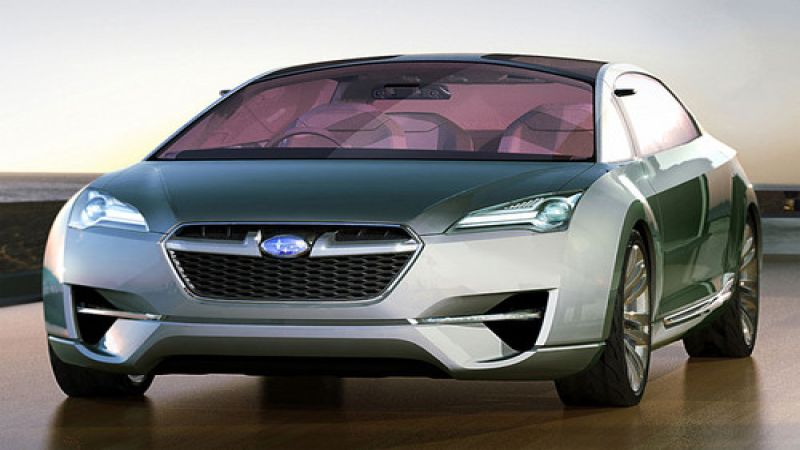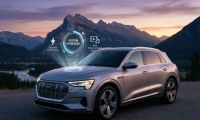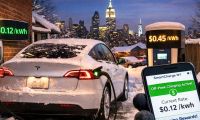The last few conversions sparked on the comment sections of some articles highlighted an interesting point, according to your budget, range is not an issue for most people. What is also obvious is that gasoline car buyers care less about range than they seem to do about electric vehicles. After all, calculating range is a tricky thing and depends ultimately on the conditions of roads, urban or highway traffic and of course, your driving style. So how did we get so bogged down by range with electric vehicles, EV?
Is Range Such An Issue? That is the question carmakers need to assess. Unfortunately when EVs were re-introduced a few years ago, the marketing started centering around the range issue, even if 40 miles a day is what most of us seem to do, something practically every EV can do. GM embarked on its famous “Range Anxiety” crusade, which certainly has not helped further the cause. What’s done is done. Carmakers are now struggling to market EVs toward the right segment, namely city dwellers and light urban traffic.
The Point. The point made previously is that those who can afford $50,000 and onward rarely think about the range of their cars. After all, someone who buys a BMW M3 or 5, a Subaru WRX, a Porsche, Maserati, Mercedes or Ferrari won’t usually know, nor care about the theoretical range of their cars. Yet, when it comes to a $50,000 or a 100K Tesla Model S, that is the first thought on everyone’s mind. While range is important overall, it isn’t the most crucial aspect of buying a car, especially at that price range. It becomes more so in the $20,000 to 30K segment.
Low Range For Cities. This is where the early marketing tactics really failed EVs in general. Had carmakers concentrated on city dwellers and urbanites who travel short distances, EVs would have had better sales numbers. They certainly have done well in the middle of this economic quagmire compared to the introduction of hybrids over a decade ago. Do we need to redefine EVs and target them for short trips and daily commutes? Certainly. Do they meet 90% of our daily drives? Absolutely. So why expect a car to go 400 miles when rarely do so? Go figure.
It’s too bad in the end because EVs are just another strength of the automobile market. It’s just another choice. It brings competition and as with any choice, it only applies to someone and not everyone. Yet, so many people get bent out of shape because the range of an economical to operate car is a third of a regular gasoline car. Ultimately, the only real problem with EVs currently is price. Yes, they are that much more expensive to buy but yes, they are lower to maintain overall and you can recoup in most cases your purchase within a few years, depending on where you live.
Set Torque News as Preferred Source on Google











Comments
Range is not important to any
Permalink
Range is not important to any purchaser of a combustion engine powered vehicle. Range is only limited by availability of fuel stations. EVs are limited by availability of charge stations combined with charge time.
That's why we need to see EVs
Permalink
In reply to Range is not important to any by Anonymous (not verified)
That's why we need to see EVs are perfect city vehicles. As battery technology evolves, as it has done in the past, charge time becomes quicker and we'll charge even faster. Consider that we can have an 80% charge in 20mn, I say we're almost here.
Hi Nicolas, Your article is a
Permalink
Hi Nicolas,
Your article is a very good asessment of the way EV's are perceived and ultimately and sadly discounted as a viable mainstream alternative to the ICE vehicle. Current Low carbon ICE/Hybrid vehicles "could" in theory easily have a 2000+ mile range if the vehicle manufacturers paid some serious attention to packaging and aero's. Best of breed, current technology pure EV's would struggle to get near one tenth of that range. There is hope. EV engineers are always trying to get the proverbial quart out of a pint pot. The only thing that a serious pure EV engineer has in his arsenal to allay the fears and prejudices is, the development of their vehicle aerodynamics. Excellence in this area is a free ride and will dramatically extend range and improve performance. Google the X prize winners and losers to see what works! It's as simple as that. Most people want a vehicle that will, either do everything, or get them to their playground. Dare I say that, the former will not be interested in where they live, as you indicate, but how they live. They may jump to buy an EV that has the range for their daily commute, but will this same car do a once a month trip to see aunt Jessica who is 250 miles away? My opposing point is that in the 20K to 30K bracket, vehicle range is still a significant and important factor in acheiving volume sales.
Regards
Colin
You're right Colin. In fact,
Permalink
In reply to Hi Nicolas, Your article is a by Colin Russell (not verified)
You're right Colin. In fact, I'm willing to bet this year we will see battery management and general energy management improvements, not so much revolutionary technologies. What we have works well and if Tesla has proven anything, it's that even with good old Lithium-Ion, a 200 to 300 mile range is vehicle is possible. What Tesla has done well is with energy management, showing a current battery technology works well enough. CODA has also done a great job with their Li-Po and their energy management is truly excellent.
Lastly, yes aerodynamics is the last frontier to be conquered but as much as people want a 500 miles electric vehicles for that once in a while trip, they don't want truly aerodynamic cars. Ever wonder why the back wheels are still apparent and not tucked away under a streamlined cover? People don't like it for some odd reason. I think when gasoline climbs above most people's comfort zones, they will probably overlook presumed aesthetics. I happen to think covered back wheels looks good.
Thank you, Nicolas